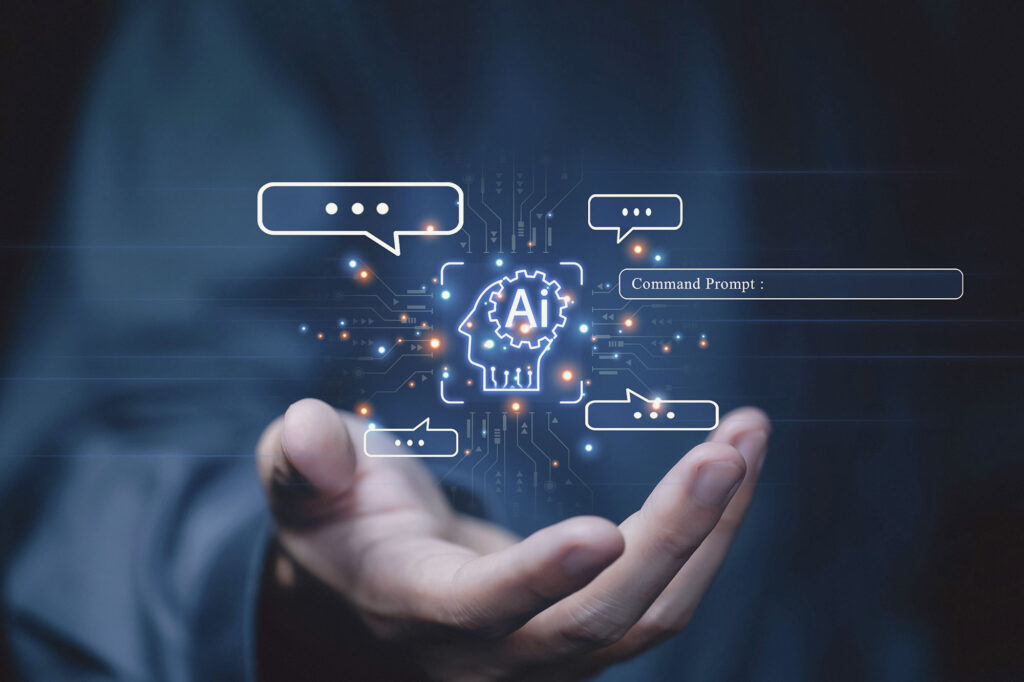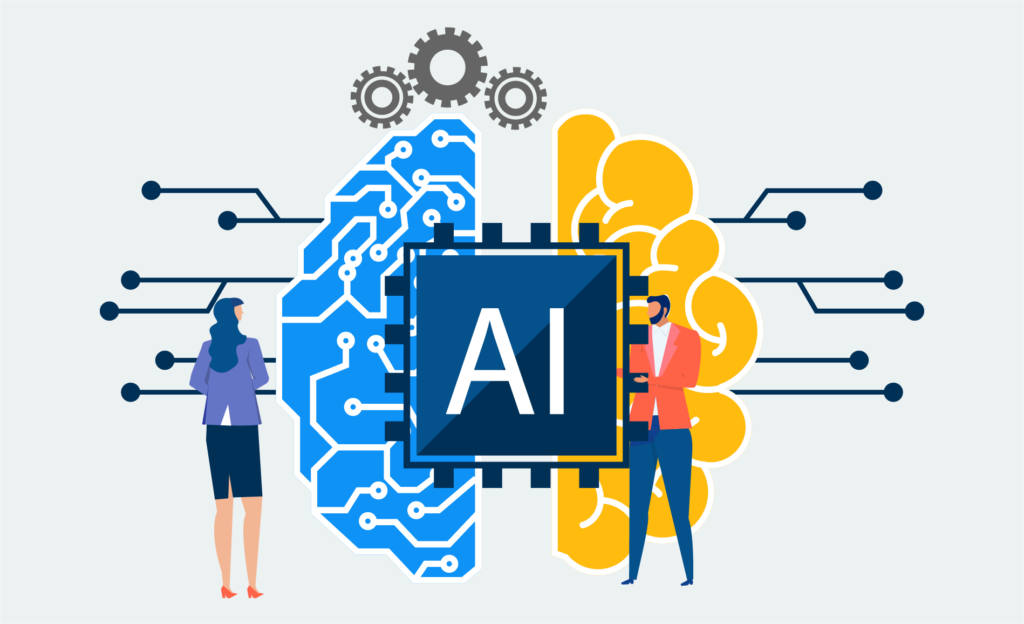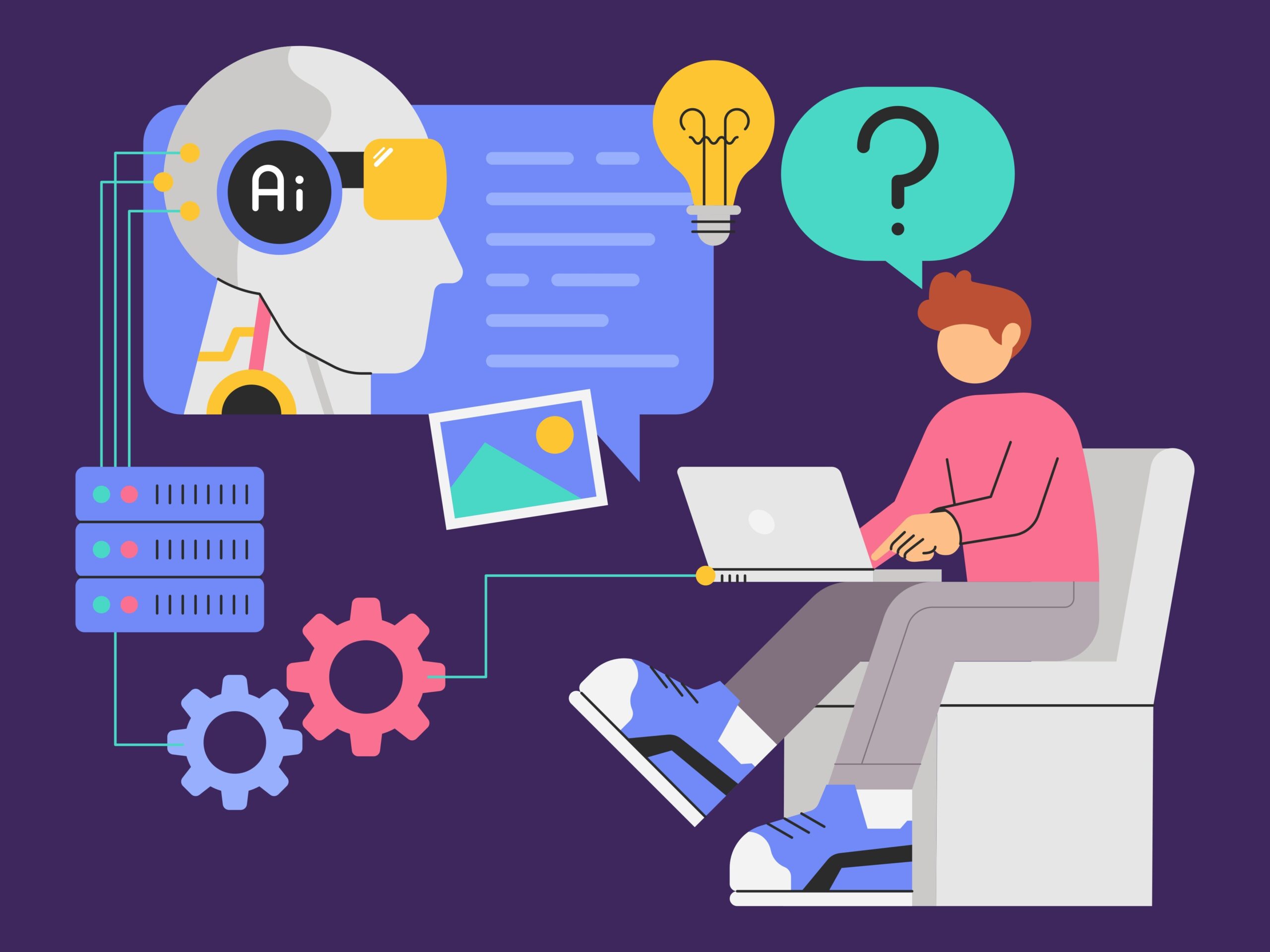AI in Healthcare is reshaping the healthcare industry, enhancing diagnostics, personalizing treatment plans, and improving patient outcomes. With AI-driven solutions, healthcare professionals can analyze vast amounts of medical data, leading to faster and more accurate diagnoses.
In this article, we’ll explore how AI is revolutionizing healthcare and how it’s changing the way we approach medical treatment.
How AI is Changing Healthcare: Key Areas of Impact
1. AI-Powered Medical Diagnosis
AI-powered medical diagnosis is transforming healthcare by improving accuracy, speed, and efficiency. Traditional diagnostic methods often rely on human interpretation, which can be time-consuming and prone to errors. AI, on the other hand, processes vast amounts of patient data, medical records, and imaging scans to detect diseases earlier and more accurately.
How AI Improves Medical Diagnosis:
- Medical Imaging Analysis – AI algorithms analyze X-rays, MRIs, CT scans, and ultrasounds to detect abnormalities like tumors, fractures, and organ dysfunctions with high precision.
- Pattern Recognition in Diseases – Machine learning models identify disease patterns in lab test results, helping in the early detection of conditions like diabetes, cancer, and Alzheimer’s.
- AI-Assisted Decision Support – AI provides doctors with data-driven recommendations by cross-referencing symptoms, genetic data, and past diagnoses.
Real-World Example:
Google’s DeepMind developed an AI system that can detect over 50 eye diseases from retina scans with accuracy comparable to expert ophthalmologists.

2. Robotic Surgery and AI-Assisted Procedures
AI-powered robotic surgery is revolutionizing the way complex surgical procedures are performed. Robotic-assisted surgery enhances precision, reduces human error, and minimizes recovery time for patients.
Key Benefits of AI in Surgery:
- Minimally Invasive Procedures – Robotic arms controlled by AI make precise movements, reducing tissue damage and leading to faster healing.
- Real-Time AI Assistance – AI analyzes patient data during surgery, guiding surgeons in real-time and alerting them to potential risks.
- Reduced Human Error – AI eliminates hand tremors, ensuring higher accuracy in delicate surgeries.
Real-World Example:
The da Vinci Surgical System assists surgeons in performing minimally invasive surgeries with robotic precision, reducing complications and hospital stays.
3. AI in Drug Discovery and Development
Traditional drug discovery is a lengthy and expensive process, often taking 10–15 years and costing billions of dollars. AI significantly accelerates this process by predicting how different chemical compounds interact with biological targets.
How AI is Transforming Drug Development:
- Predicting Drug Efficacy – AI models analyze vast biomedical datasets to identify promising drug candidates.
- Reducing Research Costs – AI-powered simulations eliminate the need for expensive physical experiments.
- Personalized Drug Discovery – AI tailors drugs based on genetic profiles, leading to more effective treatments.
Real-World Example:
AI-driven company Insilico Medicine discovered a new drug for fibrosis in just 46 days, a process that typically takes years.
4. Personalized Treatment Plans
Every patient is unique, and AI enables personalized treatments based on genetics, lifestyle, and medical history. AI-driven precision medicine ensures treatments are tailored to individual needs rather than a one-size-fits-all approach.
How AI Enables Personalized Treatment:
- Genomic Analysis – AI examines a patient’s genetic makeup to determine which treatments will be most effective.
- Adaptive Therapy Plans – AI monitors patient responses and adjusts treatments accordingly.
- Chronic Disease Management – AI helps in managing long-term conditions like diabetes and hypertension by providing personalized care plans.
Real-World Example:
IBM Watson Health’s AI analyzes genomic data to recommend personalized cancer treatments, increasing patient survival rates.

5. Virtual Health Assistants and Chatbots
AI-powered virtual assistants and chatbots are revolutionizing patient engagement by providing instant medical support. These tools help patients manage their health, reducing the burden on healthcare professionals.
Functions of AI Health Assistants:
- Symptom Checking – AI-powered chatbots analyze symptoms and suggest possible conditions.
- Appointment Scheduling – AI systems manage patient bookings and reminders.
- Medication Reminders – Virtual assistants remind patients to take their medications on time.
Real-World Example:
Ada Health is an AI-driven chatbot that provides preliminary diagnoses based on patient symptoms, guiding them to the appropriate medical care.
6. Predictive Analytics in Healthcare
Predictive analytics uses AI to forecast disease outbreaks, patient deterioration, and hospital readmissions. By analyzing historical and real-time data, AI helps healthcare providers take preventive measures.
How AI Enhances Predictive Analytics:
- Early Disease Detection – AI identifies high-risk patients for diseases like heart disease and diabetes.
- Hospital Resource Optimization – AI predicts patient admissions, helping hospitals manage resources effectively.
- Preventing Epidemics – AI analyzes global health trends to predict and contain disease outbreaks.
Real-World Example:
BlueDot, an AI-powered system, detected the COVID-19 outbreak nine days before the World Health Organization (WHO) issued an official warning.
7. AI in Medical Imaging and Radiology
Medical imaging is critical for diagnosing diseases, and AI has significantly improved accuracy and efficiency in radiology.
How AI Improves Medical Imaging:
- Early Cancer Detection – AI scans mammograms and lung X-rays to detect cancerous growths early.
- Enhanced MRI & CT Scans – AI reduces scanning time and improves image clarity.
- Automated Report Generation – AI assists radiologists by summarizing key findings in diagnostic reports.
Real-World Example:
Google’s DeepMind AI can detect breast cancer from mammograms with greater accuracy than human radiologists.
8. AI in Electronic Health Records (EHR) Management
Electronic Health Records (EHRs) store patient information digitally, but managing vast amounts of data can be overwhelming. AI automates EHR management, reducing administrative workload and improving efficiency.
AI-Driven EHR Advancements:
- Automated Data Entry – AI transcribes doctor-patient interactions, eliminating manual documentation.
- Smart Search & Retrieval – AI quickly finds relevant patient records.
- Error Reduction – AI detects inconsistencies in patient records, preventing medical errors.
Real-World Example:
Nuance Dragon Medical AI reduces physician documentation time by 45%, allowing more focus on patient care.

9. AI in Mental Healthcare and Therapy
AI-driven mental health solutions provide therapy, monitor moods, and offer emotional support, making mental health care more accessible.
How AI Supports Mental Health:
- AI Chatbots for Therapy – AI-powered virtual therapists provide Cognitive Behavioral Therapy (CBT).
- Mood Tracking & Sentiment Analysis – AI analyzes speech patterns to detect early signs of depression or anxiety.
- Suicide Prevention – AI monitors social media and health data to identify at-risk individuals.
Real-World Example:
Woebot, an AI-powered mental health chatbot, provides 24/7 therapy for individuals suffering from anxiety and depression.
10. AI for Remote Patient Monitoring
Remote patient monitoring (RPM) allows doctors to track patients’ health in real-time using wearable devices and AI-driven analytics.
Benefits of AI in Remote Monitoring:
- Continuous Health Tracking – Wearables track vitals like heart rate, oxygen levels, and blood pressure.
- AI in Healthcare for Critical Conditions – AI sends alerts to doctors when patient vitals show dangerous trends.
- Better Chronic Disease Management – AI helps in monitoring patients with diabetes, heart disease, and respiratory conditions.
Real-World Example:
Apple Watch uses AI to detect irregular heart rhythms and notify users of potential atrial fibrillation risks.
Frequently Asked Questions (FAQs)
1. How is AI used in healthcare?
AI in Healthcare is used in medical diagnosis, drug discovery, robotic surgery, predictive analytics, and patient monitoring. It enhances efficiency, accuracy, and patient care.
2. Can AI replace doctors?
No, AI cannot replace doctors but assists them by providing data-driven insights, improving diagnostics, and automating routine tasks.
3. Is AI in healthcare safe?
Yes, AI in Healthcare is safe when properly implemented. However, it requires strict regulations, ethical considerations, and continuous monitoring to ensure accuracy and reliability.
4. How does AI improve medical diagnosis?
AI in Healthcare analyzes medical images, lab tests, and patient records to detect diseases early, reducing errors and improving diagnostic accuracy.
5. What are the challenges of AI in healthcare?
Challenges include data privacy concerns, high implementation costs, lack of skilled professionals, and potential biases in AI algorithms.
6. How does AI help in mental health?
AI-powered apps and chatbots provide mental health support, therapy, and mood tracking, helping individuals manage anxiety and depression.
7. What is the future of AI in healthcare?
The future of AI in healthcare includes advanced AI-powered diagnostics, robotic surgeries, smart hospitals, and personalized treatments using genomics.
Conclusion
AI in Healthcare by improving diagnosis, treatment, and patient care. With advancements in machine learning and deep learning, AI is set to transform the medical industry, making healthcare more efficient, affordable, and personalized.
By leveraging AI-driven solutions, healthcare providers can enhance patient outcomes, reduce operational costs, and pave the way for a smarter, technology-driven future in medicine. Get in touch with us today!











